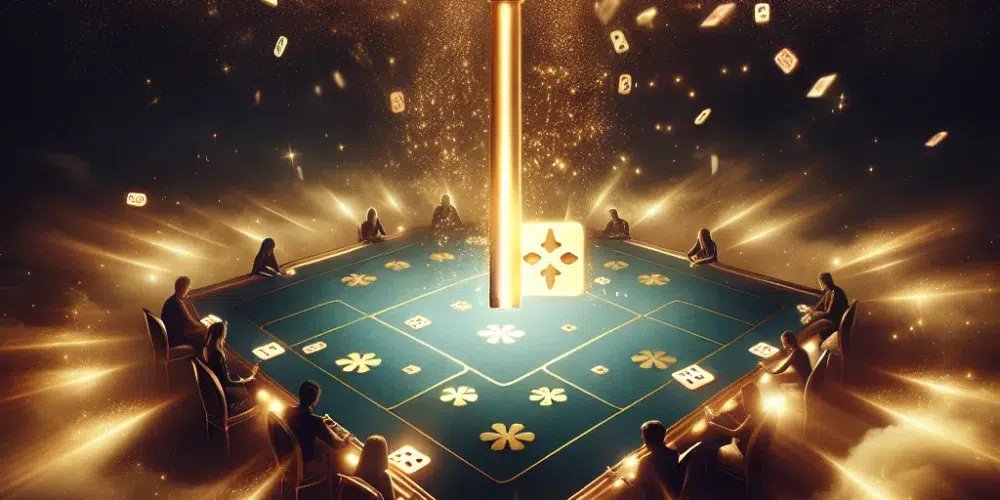Understanding the Basics of Pai Gow
One common mistake Pai Gow players make is not fully comprehending the structure of the game before diving in. Pai Gow, a game of Chinese origin played with a set of 32 Chinese dominoes, is intriguing yet complex. Each player receives 4 tiles which they must arrange into two hands of two tiles each. The goal is to beat both the dealer’s hands, balancing your primary and secondary hands effectively to maximize your winning potential.
Tile Rankings and Hand Composition
It’s crucial to understand the rankings, which differ significantly from other casino games. The highest-ranked hand is a pair of Gee Joon tiles, while individual tiles are also ranked, with the 12-ranked tile (mixed 9s) being the highest. Familiarizing yourself with these rankings through resources like strategy cards or apps can dramatically improve your gameplay.
Optimal Pai Gow Strategies
Even seasoned Pai Gow players can overlook the importance of balancing their hands. A common strategy is to focus on making the strongest possible high hand, but if your second hand is substantially weaker, you are more likely to push (tie) than win.
Hand Balancing Techniques
Consider the strength of your tiles. If you have a strong tile like a high-ranked 12, you might want to balance it with a weaker tile to strengthen your overall hand. This strategy can often lead to winning both hands instead of just one.
Reading the Table
Observing how your opponents arrange their tiles can offer immense insights. Some players might focus on a robust high hand, neglecting their low hand. By configuring your hands to potentially beat both of an opponent’s, you leverage their strategy to your benefit.
Bankroll Management in Pai Gow
Pai Gow is notoriously slow-paced, which can be a strategic advantage. Since the game often leads to a push, dramatic losses are less common, but this can also mean a slow erosion of the bankroll if not managed properly.
Setting Win/Loss Limits
Before sitting down at the Pai Gow table, decide how much you are willing to risk and what your target winnings are. Stick to these limits rigorously to avoid the common pitfalls of chasing losses or playing through a winning streak only to lose everything back.
Pace and Play
The slow nature of Pai Gow offers a unique advantage: you can set the pace. Utilize this to take breaks, think through your tile arrangement, and avoid rash decisions. Remember, more rounds played does not necessarily equate to more chances to win if each decision isn’t well-calculated and strategic.
Advanced Techniques and Etiquette
Pai Gow, like any casino game, comes with its own set of table etiquettes and advanced playing techniques, which can be pivotal in maximizing your gameplay experience.
Understanding the House Way
The ‘House Way’ is the method the dealer uses to set their hands. By studying this method, you can predict how the dealer might organize their tiles in certain situations. This insight allows you to strategically set your hands to give you the best chance of winning.
Table Etiquette
Good etiquette at the Pai Gow table is essential for a pleasant gaming experience. Be respectful when handling tiles, and maintain a positive interaction with both dealers and players. This not only makes the game more enjoyable but also keeps the atmosphere at the table light and stress-free, which is conducive to strategic thinking.
In sum, Pai Gow is a unique blend of strategy, patience, and understanding. By mastering the rankings, balancing your hands wisely, managing your bankroll, and adopting advanced strategies like studying the House Way, your next session at the Pai Gow table could be both profitable and immensely enjoyable. Remember, every tile placement counts, and with a solid strategy, you can significantly increase your chances of success.

David Garato is a luminary in gaming journalism, renowned for peeling back the curtain on the gaming world with his witty and insightful commentary. A decade into weaving stories from the pixelated edges of indie games to the expansive universes of AAA titles, David’s work is a thrilling blend of analysis and adventure. When not writing, he’s live-streaming, sharing his gaming exploits with an engaged and growing audience. David doesn’t just write about games; he lives them, making him a trusted guide in the gaming community.
















